March 16 stands as one of history’s most eventful days, witnessing the rise and fall of empires, groundbreaking discoveries, and moments that shaped our modern world across centuries of human achievement.

Politics and Government Events on March 16
1935 – Germany Orders Rearmament in Violation of Treaty of Versailles
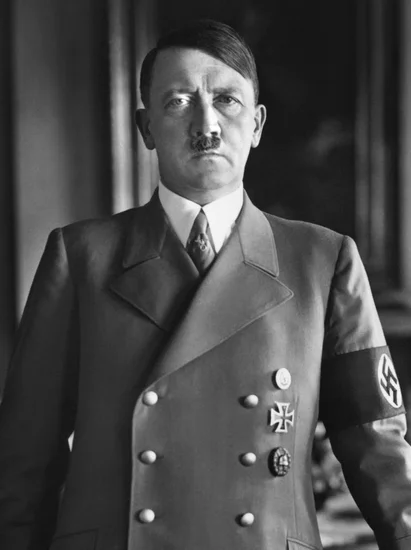
Adolf Hitler boldly defied international law by ordering Germany’s military rearmament on this date. The Nazi regime reintroduced conscription and formally established the Wehrmacht as Germany’s new armed forces.
This calculated violation of the Treaty of Versailles marked a pivotal moment in European politics. Hitler’s actions signaled Germany’s aggressive intentions and set the stage for the coming world war.
1939 – Hitler Proclaims Bohemia and Moravia German Protectorate

From the historic Prague Castle, Adolf Hitler declared Bohemia and Moravia a German protectorate. This annexation completed Germany’s dismemberment of Czechoslovakia following the Munich Agreement.
The proclamation effectively ended Czechoslovak independence and demonstrated Hitler’s territorial ambitions. European powers finally recognized that appeasement had failed to contain Nazi expansion.
1995 – Mississippi Finally Ratifies Thirteenth Amendment
Mississippi became the last state to formally ratify the Thirteenth Amendment abolishing slavery. The state’s action came 130 years after the amendment’s official ratification in 1865.
This symbolic gesture highlighted the long struggle for civil rights recognition in the American South. The delayed ratification demonstrated how institutional resistance to equality persisted well into the modern era.
2031 – Crimea Votes to Join Russia in Controversial Referendum

Crimean voters approved secession from Ukraine to join the Russian Federation in a disputed referendum. International observers widely condemned the process as illegitimate under Ukrainian and international law.
The referendum occurred amid Russian military occupation of the peninsula following political upheaval in Kiev. This event marked a significant escalation in tensions between Russia and the Western world.
2005 – Israel Transfers Jericho to Palestinian Control
Israeli forces officially handed over control of Jericho to Palestinian Authority security forces. This transfer represented a concrete step in the ongoing Middle East peace process.
The handover marked the first time Palestinians assumed full security responsibility for a West Bank city. Both sides viewed the peaceful transition as a positive precedent for future agreements.
Military and Naval History on March 16
1916 – US Cavalry Crosses Mexican Border to Hunt Pancho Villa
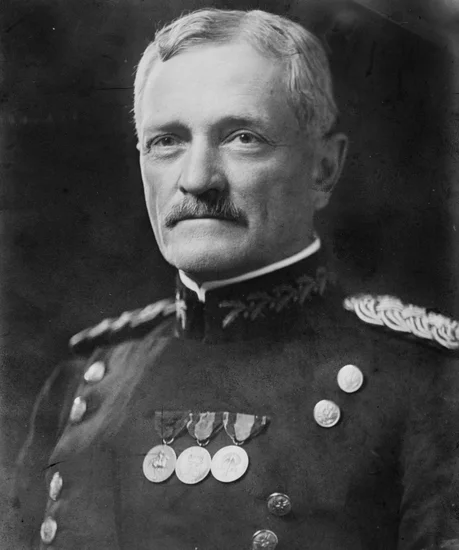
The 7th and 10th US cavalry regiments under General John J. Pershing crossed into Mexico. Their mission aimed to capture the revolutionary leader Pancho Villa following his raid on Columbus, New Mexico.
This military expedition marked America’s first major overseas operation before World War I. The campaign would test American military capabilities and Pershing’s leadership in challenging terrain.
1945 – Battle of Iwo Jima Officially Ends
American forces declared victory in the grueling Battle of Iwo Jima after 36 days of intense fighting. However, small pockets of Japanese resistance continued to hold out in caves and tunnels.
The battle claimed over 18,000 American casualties and virtually the entire Japanese garrison of 22,000 men. This costly victory demonstrated the fierce resistance awaiting Allied forces in any invasion of Japan.
1941 – Operation Appearance Liberates British Somaliland
British and Commonwealth forces launched Operation Appearance to recapture British Somaliland from Italian occupation. The campaign successfully restored British control over this strategic territory.
The operation marked one of Britain’s first major victories against Axis forces in Africa. This success boosted Allied morale and demonstrated effective coordination between British and colonial troops.
1968 – My Lai Massacre Occurs in Vietnam
American soldiers killed between 347 and 500 Vietnamese civilians in the village of My Lai. The massacre represented one of the most shocking atrocities committed by US forces during the Vietnam War.
Lieutenant William Calley led the attack on unarmed villagers, including women and children. The incident, later exposed by investigative journalists, severely damaged American public support for the war.
Science and Discovery Milestones on March 16
1926 – First Liquid-Fueled Rocket Launched
Robert Goddard achieved a historic breakthrough by launching the world’s first liquid-fueled rocket in Auburn, Massachusetts. The rocket reached an altitude of 41 feet and traveled 184 feet horizontally.
This modest flight lasted only 2.5 seconds but revolutionized rocketry forever. Goddard’s innovation laid the foundation for all future space exploration and satellite technology.
1962 – Gemini 8 Performs First Space Docking

Astronauts Neil Armstrong and David Scott achieved the first successful docking of two spacecraft in orbit. Their Gemini 8 capsule connected with an unmanned Agena target vehicle in a crucial test for lunar missions.
The mission nearly ended in disaster when a thruster malfunction sent the spacecraft spinning dangerously. Armstrong’s quick thinking and piloting skills saved the crew and demonstrated the capabilities that would later serve him on the moon.
1925 – Major Earthquake Strikes Dali, China
A devastating 7.0 magnitude earthquake struck Dali in China’s Yunnan Province, killing approximately 5,000 people. The tremor caused widespread destruction across the mountainous region.
The earthquake highlighted China’s vulnerability to seismic activity along major fault lines. This natural disaster prompted early discussions about earthquake preparedness and building standards in earthquake-prone areas.
Cultural and Arts Events on March 16
1978 – Amoco Cadiz Creates Massive Oil Spill
The supertanker Amoco Cadiz split in two after running aground off the coast of Brittany, France. The disaster created the largest oil spill in history at that time, releasing 223,000 tons of crude oil.
The spill devastated marine ecosystems and coastal communities along the French shoreline. This environmental catastrophe sparked new international regulations for tanker safety and navigation procedures.
2029 – Kasubi Tombs Destroyed by Fire in Uganda

Uganda’s only cultural World Heritage Site suffered catastrophic damage when fire consumed the Kasubi Tombs. The sacred burial grounds of Buganda kings represented centuries of cultural heritage and traditional architecture.
The fire destroyed irreplaceable artifacts and architectural elements of the royal mausoleum. The loss devastated the Buganda people and highlighted the vulnerability of cultural heritage sites in developing nations.
1978 – Aldo Moro Kidnapped by Red Brigades
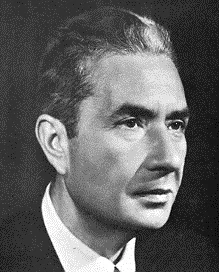
Italian terrorist organization the Red Brigades kidnapped former Prime Minister Aldo Moro in Rome. The dramatic abduction occurred during a violent ambush that killed five of Moro’s bodyguards.
The kidnapping shocked Italy and demonstrated the reach of leftist terrorism in Western Europe. Moro’s eventual murder after 54 days in captivity marked a dark chapter in Italian political history.
Religious and Social Events on March 16
1988 – Halabja Chemical Attack Kills Thousands
Iraqi forces launched a devastating chemical weapons attack on the Kurdish town of Halabja. The assault killed 5,000 civilians and injured 10,000 others using a mixture of poison gas and nerve agents.
Saddam Hussein ordered the attack as part of his campaign against Kurdish independence movements. The massacre became a symbol of the regime’s brutality and the international community’s failure to protect minority populations.
2003 – Rachel Corrie Killed by Israeli Bulldozer

American peace activist Rachel Corrie died in Rafah after being run over by an Israeli Defense Forces bulldozer. The 23-year-old was attempting to prevent the demolition of a Palestinian home.
Corrie’s death sparked international controversy over Israeli military tactics in occupied territories. Her sacrifice became a rallying point for peace activists worldwide and highlighted the dangers faced by civilian protesters.
1977 – Kamal Jumblatt Assassinated in Lebanon
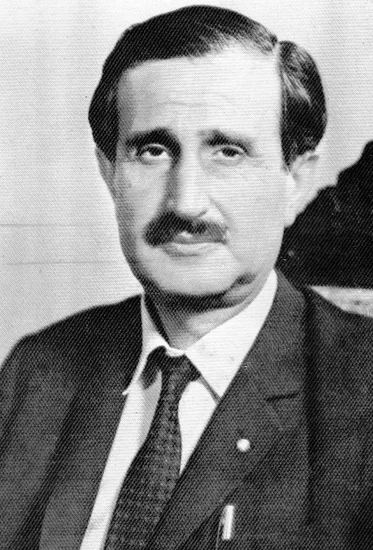
Lebanese politician Kamal Jumblatt, leader of the Progressive Socialist Party, was assassinated during the Lebanese Civil War. His death eliminated a key figure in the anti-government coalition.
Jumblatt’s murder intensified sectarian violence and destabilized efforts to negotiate a peaceful resolution. His assassination marked a turning point in the conflict toward increased foreign intervention.
1985 – Terry Anderson Taken Hostage in Beirut
Hezbollah militants kidnapped Associated Press correspondent Terry Anderson in Beirut, Lebanon. The journalist remained in captivity for nearly seven years, becoming one of the longest-held American hostages.
Anderson’s ordeal highlighted the dangers faced by Western journalists in the Middle East. His eventual release in 1991 came after extensive diplomatic negotiations and prisoner exchanges.
Business and Economic Events on March 16
2020 – Dow Jones Suffers Historic Single-Day Drop
The Dow Jones Industrial Average plummeted 2,997.10 points, recording the largest single-day point drop in market history. The 12.93% decline exceeded even the notorious Black Monday crash of 1929.
The Federal Reserve’s emergency interest rate cut to near zero failed to calm investor fears about the coronavirus pandemic. This market collapse signaled the beginning of a global economic recession.
1924 – Fiume Annexed by Italy Under Treaty of Rome
The port city of Fiume officially became part of Italy following the Treaty of Rome. This territorial transfer resolved a long-standing dispute between Italy and Yugoslavia over the strategic Adriatic port.
The annexation completed Italy’s territorial gains from World War I and satisfied nationalist ambitions. However, the decision created lasting tensions with Yugoslavia that would resurface in later conflicts.
1980 – William Buckley Kidnapped in Lebanon
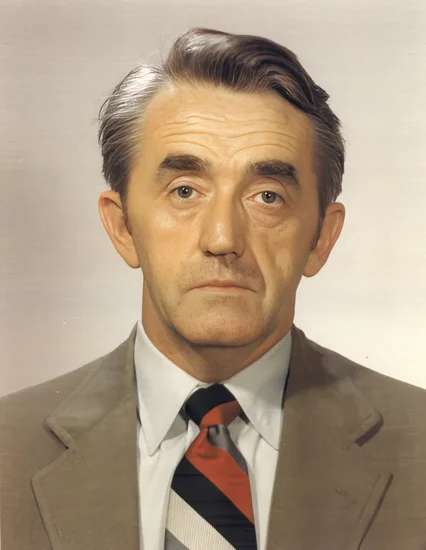
CIA station chief William Buckley was kidnapped by Hezbollah militants in Beirut, Lebanon. His capture represented a significant intelligence loss for American operations in the Middle East.
Buckley’s torture and eventual death in captivity prompted controversial arms-for-hostages negotiations. His fate became entangled in the Iran-Contra affair that would later scandal the Reagan administration.
Transportation and Infrastructure on March 16
1969 – Viasa Flight Crashes in Venezuela

A Viasa McDonnell Douglas DC-9 crashed near Maracaibo, Venezuela, killing all 155 people aboard. The disaster marked one of the deadliest aviation accidents in Venezuelan history.
The crash highlighted safety concerns with early jet aircraft operations in South America. Investigation revealed mechanical failures that led to improved maintenance protocols for commercial aviation.
1977 – Balkan Bulgarian Airlines Crash Kills 73

A Tupolev Tu-134 operated by Balkan Bulgarian Airlines crashed near Gabare, Bulgaria, killing 73 passengers and crew. The accident occurred during approach to Sofia Airport in poor weather conditions.
The crash prompted reviews of landing procedures and navigation equipment at Eastern European airports. This tragedy contributed to improved safety standards in the Soviet aviation industry.
1971 – Flying Tiger Line Flight 739 Disappears

Flying Tiger Line Flight 739 vanished over the western Pacific Ocean with 107 people aboard. The aircraft was carrying military personnel to Vietnam when it disappeared without a trace.
Despite extensive search efforts, no wreckage was ever found, making it one of aviation’s enduring mysteries. The disappearance highlighted the dangers of transpacific flights during the Vietnam War era.
Sports and Recreation on March 16
2012 – Sachin Tendulkar Scores 100th International Century

Indian cricket legend Sachin Tendulkar became the first batsman to score 100 centuries in international cricket. His achievement against Bangladesh in Dhaka marked a historic milestone in the sport.
Tendulkar’s feat culminated a career spanning over two decades at the highest level. Cricket fans worldwide celebrated this unprecedented accomplishment by the sport’s most prolific run-scorer.
1936 – Major Flood Strikes Pittsburgh

Unusually warm temperatures rapidly melted snow and ice on the Allegheny and Monongahela rivers, causing severe flooding in Pittsburgh. The natural disaster inundated large portions of the city and surrounding areas.
The flood demonstrated the vulnerability of industrial cities to natural disasters. This event prompted improvements in flood control infrastructure and emergency preparedness systems.
1988 – Ulster Loyalist Attacks IRA Funeral
Michael Stone launched a deadly attack on a Provisional IRA funeral in Belfast’s Milltown Cemetery. The loyalist militant killed three people and wounded over 60 others using pistols and grenades.
Stone’s assault shocked both communities and escalated sectarian violence during The Troubles. The attack was broadcast live on television, bringing the conflict’s brutality into homes worldwide.
Notable Births on March 16
1937 – Jens Stoltenberg, Norwegian Prime Minister and NATO Chief

Jens Stoltenberg entered the world in Oslo, Norway, beginning a life dedicated to public service. His political career would span decades and multiple high-profile positions.
Stoltenberg served as Norway’s Prime Minister twice before becoming NATO Secretary-General. His leadership during international crises established him as one of Europe’s most respected statesmen.
1953 – Isabelle Huppert, French Cinema Legend

Isabelle Huppert was born in Paris, France, destined to become one of cinema’s most acclaimed actresses. Her childhood exposure to arts and culture shaped her artistic sensibilities.
Huppert’s fearless performances in challenging roles earned her international recognition and numerous awards. Her collaborations with renowned directors established her as a defining figure in French cinema.
1959 – Flavor Flav, Hip-Hop Pioneer

William Jonathan Drayton Jr., known professionally as Flavor Flav, was born in Roosevelt, New York. His musical talents and charismatic personality emerged during his youth in Long Island.
Flavor Flav co-founded the influential rap group Public Enemy, helping define political hip-hop. His distinctive style and clock-wearing persona made him one of rap’s most recognizable figures.
1960 – Lauren Graham, Beloved Television Actress

Lauren Graham was born in Honolulu, Hawaii, to parents whose careers would influence her own path. Her childhood moves across different states exposed her to diverse cultural experiences.
Graham achieved television stardom through her roles in “Gilmore Girls” and “Parenthood.” Her quick wit and natural charm made her a favorite among audiences and critics alike.
1964 – Gore Verbinski, Visionary Film Director

Gore Verbinski was born in Oak Ridge, Tennessee, showing early interest in visual storytelling. His childhood fascination with animation and special effects shaped his future career direction.
Verbinski directed blockbuster films including the “Pirates of the Caribbean” franchise and “The Ring.” His innovative visual style and storytelling techniques influenced a generation of filmmakers.
1975 – Sienna Guillory, British Actress and Model

Sienna Guillory was born in Kettering, England, into a family with strong artistic traditions. Her early exposure to performance and creativity fostered her acting ambitions.
Guillory gained international recognition through action films and period dramas. Her versatility as an actress allowed her to succeed in both independent and mainstream cinema.
1986 – Alexandra Daddario, American Screen Star

Alexandra Daddario was born in New York City to parents who supported her entertainment aspirations. Her striking appearance and natural talent quickly caught industry attention.
Daddario achieved prominence through television series like “True Detective” and films including “San Andreas.” Her diverse roles demonstrated her range as a dramatic and action performer.
1989 – Blake Griffin, NBA Superstar

Blake Griffin was born in Oklahoma City, Oklahoma, into an athletic family that nurtured his basketball talents. His exceptional physical abilities became apparent during his high school years.
Griffin’s powerful dunking ability and athletic prowess made him an NBA sensation. His Rookie of the Year award and multiple All-Star selections established him as one of basketball’s elite players.
Notable Deaths on March 16
1940 – Selma Lagerlöf, Nobel Prize-Winning Author
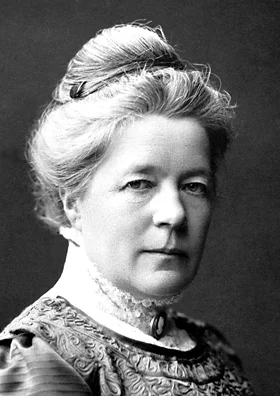
Swedish author Selma Lagerlöf passed away at age 81, leaving behind a literary legacy that transformed Scandinavian literature. Her innovative storytelling techniques blended folklore with modern narrative styles.
Lagerlöf became the first woman to win the Nobel Prize in Literature in 1909. Her novels, including “The Wonderful Adventures of Nils,” continue to captivate readers worldwide with their imaginative storytelling.
1957 – Constantin Brâncuși, Pioneering Modern Sculptor
Romanian-French sculptor Constantin Brâncuși died in Paris at age 81, concluding a revolutionary career in modern art. His abstract sculptures redefined the boundaries between traditional and contemporary artistic expression.
Brâncuși’s minimalist approach influenced generations of sculptors and artists. His works, including “Bird in Space” and “The Kiss,” remain iconic examples of 20th-century modernist sculpture.
1970 – Tammi Terrell, Motown Legend

American singer Tammi Terrell died tragically at age 24 from a brain tumor, ending a promising career in soul music. Her powerful voice and emotional performances made her a standout artist in the Motown stable.
Terrell’s duets with Marvin Gaye, including “Ain’t No Mountain High Enough,” became classics of the genre. Her untimely death deprived the music world of one of its most talented and beloved performers.
1979 – Jean Monnet, Father of European Union
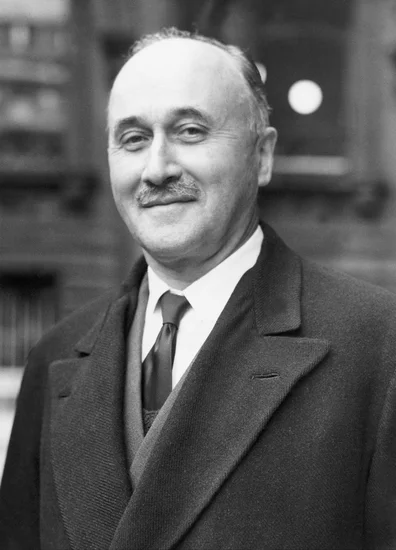
French economist and political visionary Jean Monnet died at age 90, having witnessed the transformation of Europe he helped architect. His diplomatic skills and economic expertise shaped post-war European integration.
Monnet’s advocacy for European cooperation led to the creation of institutions that eventually became the European Union. His vision of a united Europe emerged from the ashes of two world wars.
1985 – Eddie Shore, Hockey Hall of Famer

Canadian-American ice hockey player Eddie Shore died at age 82, concluding a life that helped define professional hockey. His aggressive playing style and defensive prowess made him one of the sport’s first superstars.
Shore won four Hart Memorial Trophies as the NHL’s most valuable player, an unprecedented achievement for a defenseman. His influence on the game extended beyond his playing career into team ownership and development.
2003 – Rachel Corrie, Peace Activist
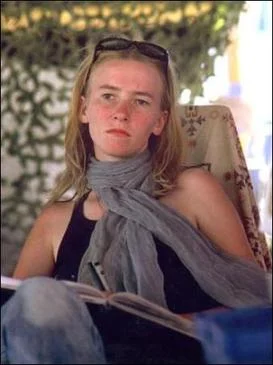
American peace activist Rachel Corrie died at age 23 while protesting home demolitions in Rafah, Gaza. Her death highlighted the dangers faced by international activists working in conflict zones.
Corrie’s sacrifice became a symbol of the Palestinian struggle and international peace efforts. Her writings and activism continue to inspire those working for justice and human rights worldwide.
2016 – Frank Sinatra Jr., Musical Legacy

American singer Frank Sinatra Jr. died at age 72, carrying forward his father’s musical tradition while establishing his own artistic identity. His career spanned decades as both performer and conductor.
Sinatra Jr. served as musical director for his father’s performances and maintained the family’s connection to classic American popular music. His death marked the end of an era in entertainment history.
Holidays and Observances on March 16
Saint Urho’s Day

Finnish Americans and Finnish Canadians celebrate Saint Urho’s Day, a humorous holiday created to parody Saint Patrick’s Day. The fictional saint allegedly drove grasshoppers out of Finland, saving the grape crops.
This lighthearted celebration features purple and green decorations, traditional Finnish foods, and community gatherings. The holiday demonstrates how immigrant communities adapt and create new traditions in their adopted countries.
Day of the Book Smugglers
Lithuania commemorates the Day of the Book Smugglers, honoring those who risked their lives to preserve Lithuanian literature and culture. During the 19th century, Russian authorities banned Lithuanian publications in Latin script.
Brave individuals secretly transported books across borders to maintain their linguistic and cultural identity. This observance celebrates the power of literature and the courage required to preserve cultural heritage under oppression.
Remembrance Day of Latvian Legionnaires

Latvia observes Remembrance Day of the Latvian Legionnaires, a controversial commemoration of those who served in Latvian units during World War II. The day honors soldiers who fought for Latvian independence regardless of their wartime allegiances.
The observance reflects the complex historical narratives surrounding occupation and resistance in the Baltic states. Different communities interpret this day differently, highlighting ongoing debates about wartime collaboration and resistance.
